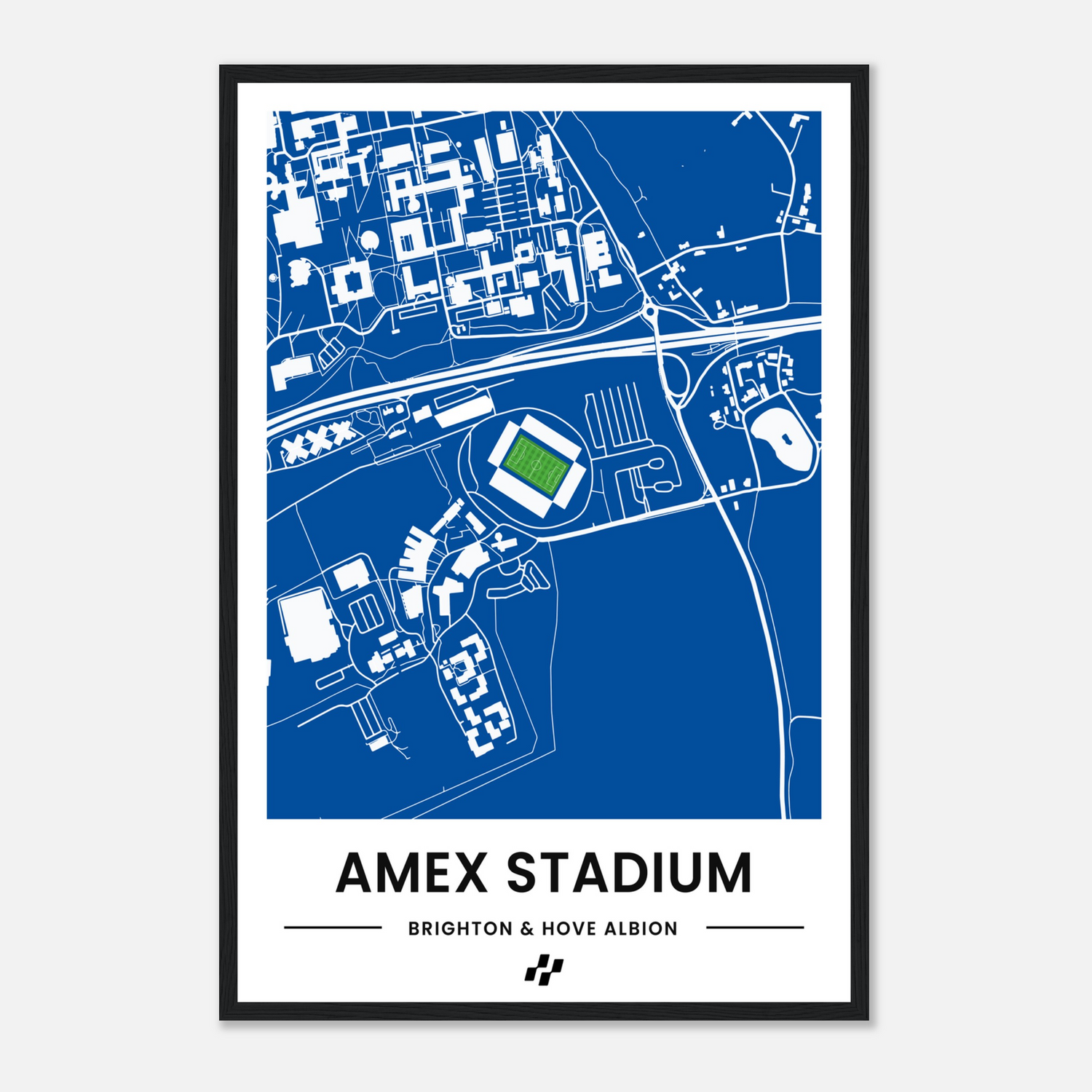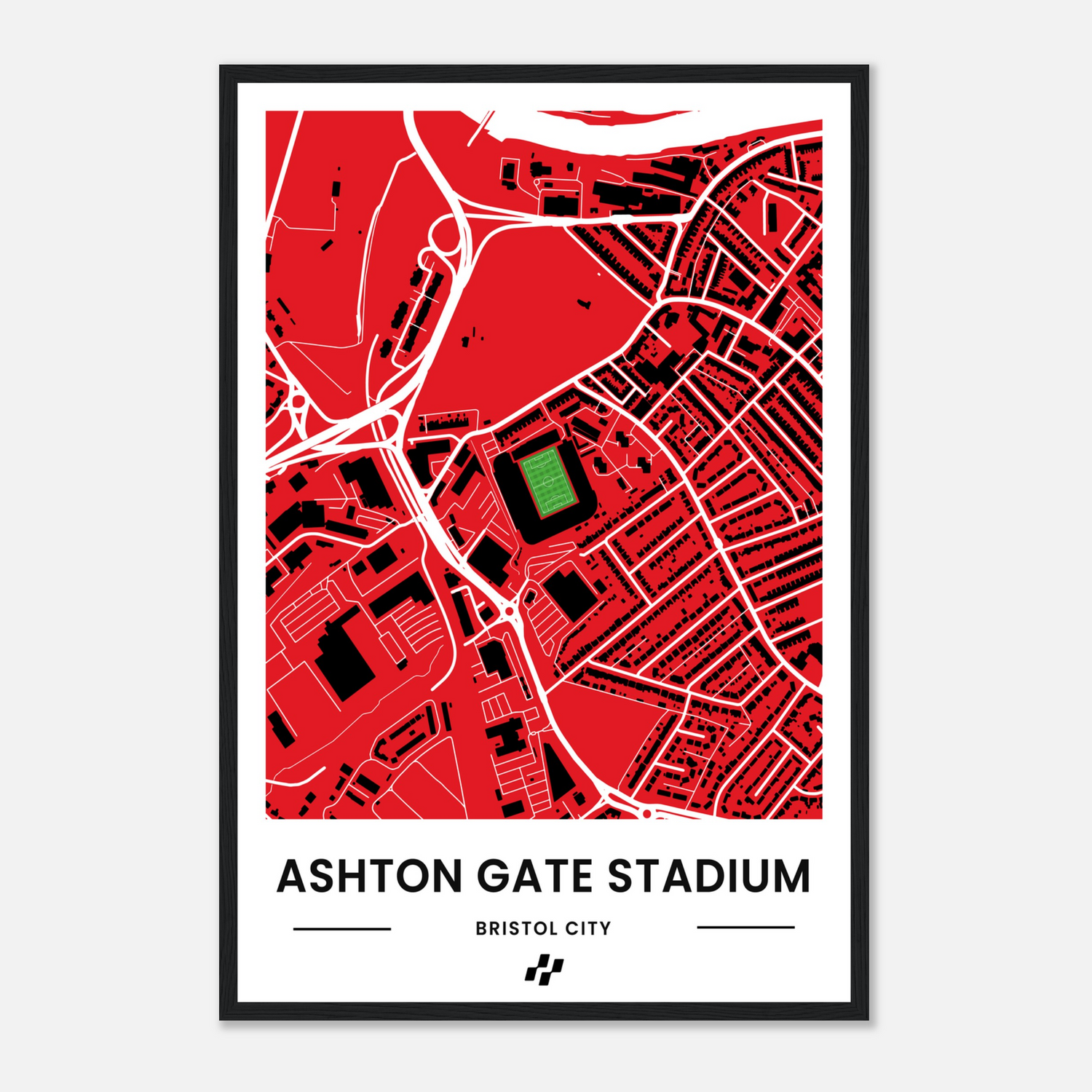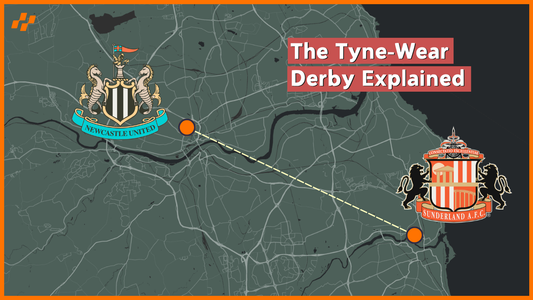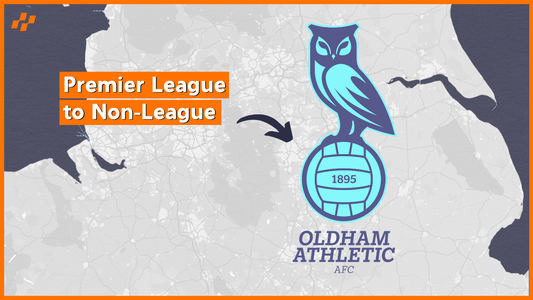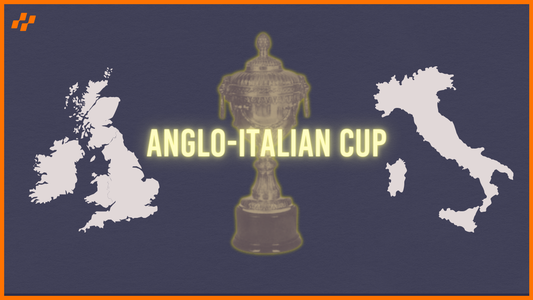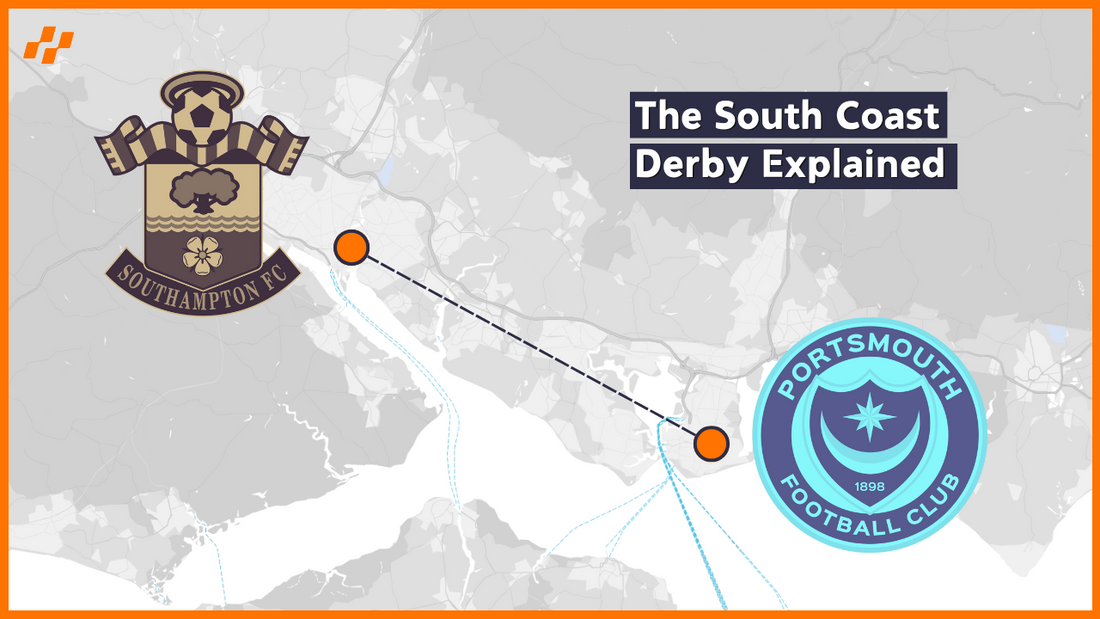
Portsmouth & Southampton: The South Coast Derby Explained
Share
Ever wondered what happens when you take two proud port cities, plonk them just 19 miles apart on England's south coast, and give them each a football team to obsess over?
The answer is the South Coast Derby – a rivalry so spicy it makes your average vindaloo taste like vanilla ice cream.
When Pompey face the Saints, forget about just playing for points or cup progress. These games are about something much bigger - they're about who owns the bragging rights in pubs, workplaces and family gatherings for months afterward.
Kids grow up choosing sides, hearing stories from parents and grandparents about legendary derby clashes from decades past.
In this article, we're heading down to the south coast to explain what really makes this rivalry between Portsmouth vs Southampton tick.
Watch the video on our YouTube channel here
A Tale of Two Ports: The Origins of Rivalry
Before we dive into the footballing fisticuffs, let's rewind – way back.
Portsmouth, with its Royal Navy swagger and military might, versus Southampton, flexing its commercial muscle through merchant shipping. It's like comparing a battleship to a cruise liner – both impressive in their own right, but destined to disagree about whose deck is bigger or shinier.
The dockyard became the heart of Portsmouth, employing thousands and fostering a strong sense of pride in the city's naval heritage.
In contrast, Southampton's expansion was driven by its role as a commercial shipping centre. The city's port facilities grew rapidly, handling an increasing volume of international trade.
This commercial focus attracted a diverse range of businesses and industries, leading to a more varied economic base than its neighbour.
Initially founded as a church football team in 1885, Southampton found great success in the Southern League, winning it six times between 1897 and 1904.
Portsmouth were founded during that period, in 1898, to meet the growing appetite for professional football in the city. Their first competitive match in 1899 saw Southampton strut away with a 2-0 victory, probably while twirling an imaginary merchant's moustache.
The Evolution of the South Coast Derby
The early years of the South Coast Derby were marked by an unexpected camaraderie between Portsmouth and Southampton fans.
Supporters from both cities often celebrated each other's successes, creating a stark contrast to the intense rivalry we see today.
This friendly relationship was perhaps best exemplified in 1939 when Portsmouth won the FA Cup, and the trophy was paraded around Southampton's Dell ground, with Southampton fans showing no signs of animosity towards their neighbours' triumph.
However, this cordial atmosphere gradually shifted as the two clubs began to meet more frequently in the Second Division during the 1960s.
The increased contact on the pitch sowed the seeds of a more competitive and eventually hostile rivalry. Southampton's rise to the First Division in 1966 marked a significant turning point.
This reversal of fortunes created a sense of jealousy and frustration among Portsmouth supporters, who saw their neighbours achieving the success they craved.
As the on-field competition intensified, a darker element emerged in the stands. The 1960s/70s saw a rise in hooliganism that mirrored a broader trend of football-related violence across the UK.
This new culture of aggression added a volatile element to the South Coast Derby, with violent confrontations between fans becoming increasingly common.
The rivalry was no longer confined to the pitch; it spilled over into the streets, creating a tense and often dangerous atmosphere.
The growing animosity found expression in the nicknames adopted by supporters. Southampton fans became known as "Scummers", whilst Portsmouth became known as "Skates", after a Southampton fanzine, The Ugly Inside, asked its readers in 1988 to suggest an abusive term most likely to cause offence to Portsmouth supporters.
The infrequent meetings between the two clubs due to their often different league positions only served to heighten the anticipation and intensity when they did face off.
Each match became a rare opportunity to assert dominance over their rivals, leading to an almost frenzied atmosphere both on and off the pitch.
Key Moments in the South Coast Derby
Every great rivalry has its "Remember when..." moments, those incidents that fans recount with either misty-eyed nostalgia or barely-contained fury, depending on which end of the M27 they call home.
For Pompey fans, their meeting in the second division in 1976 is a source of acute agony. Mick Channon scored a last-minute goal for Southampton at Fratton Park to effectively send Portsmouth down to the third tier.
Relegated, the Pompey fans had to watch on enviously as Southampton beat Manchester United in the FA Cup the following month to win the trophy.
And to make matters worse, Southampton were promoted to the top flight two years later. The footballing equivalent of watching your smug cousin get the bigger slice of cake.
In 1984, the clubs met at Fratton Park in the fourth round of the FA Cup for the first time in 78 years.
During the FA Cup game, £20,000 of damage was caused after the match and 18 people taken to hospital.
It was perhaps in the 2000s where we saw this rivalry really take on a new lease of life, as the increasing animosity between Portsmouth and Southampton supporters seemed to have reached new heights.
In March 2004, a league match at Fratton Park erupted into chaos, resembling a sudden, violent storm.
Resulting in 94 arrests, including a 14-year-old girl who became the youngest female ever banned from attending football matches in the UK.
The severity of the 2004 riot necessitated a massive police response, with 300 officers deployed to contain the situation.
The 2010 FA Cup saw Portsmouth take a 4-1 victory, and eventually reach the final, giving Pompey fans something to smile about before their financial house of cards came tumbling down faster than a defender facing peak Cristiano Ronaldo.
However, outside Southampton's St Mary's Stadium, fans resorted to using bricks, bottles, and chairs as weapons, resulting in multiple arrests for violent disorder.
The repeated outbreaks of violence have forced Hampshire Police to implement strict measures for matches between Portsmouth and Southampton.
One such measure is 'Operation Delphin,' a comprehensive strategy designed to prevent clashes between rival fans.
Harry Redknapp Saga
If the South Coast Derby needed a pantomime villain, step up Harry Redknapp. it's 2004, and Redknapp – Mr. Portsmouth himself – decides that the grass is greener at Southampton. Cue gasps, fainting and shock.
Redknapp was a hero at Portsmouth, guiding them to Premier League promotion in 2003 and a stable mid-table finish.
However, in November 2004, after a fallout with chairman Milan Mandaric, he resigned—only to take over at struggling Southampton just a few weeks later.
This unprecedented move ignited outrage among Pompey fans, with Portsmouth director Terry Brady calling it "the highest betrayal possible."
Not only had Redknapp sparked fury among Pompey fans but he had also left them for a club mired in a relegation battle. The scale of the task facing Redknapp was demonstrated in his first away game as Saints boss.
After a 5-1 thumping at Tottenham, he admitted he had gotten himself "into a tight one" by taking the job. He wasn't wrong.
By the time he took Southampton to Fratton Park in April 2005, they were bottom of the table, having won just three games in four months in charge.
Fans of his old club did not show any mercy. Having been greeted by banners and placards branding him "Judas". Portsmouth's 4-1 victory further deepened the resentment.
Just a year later, after Southampton's relegation, Harry performs the footballing equivalent of drunk-texting an ex at 2 AM and returns to Portsmouth.
In one masterful career move, he managed to unite both sets of fans in thinking, "Yeah, that Harry Redknapp... bit of a wrong'un, isn't he?"
Redknapp later confessed with characteristic understatement: "I didn't realize quite what I was letting myself in for." Which is a bit like saying the Titanic experienced "a bit of a navigation issue."
Redknapp may have won the FA Cup with Portsmouth in 2008, but the manner in which he departed for Tottenham, and the dire financial straits he left Portsmouth in, has given him persona non grata status on both sides of this fixture.
The Modern South Coast Derby
The south coast derby would clash again in the 2011/12 championship season, both fixtures ending in a draw.
After seven years of giving each other the silent treatment, they reconnected in the 2019 Carabao Cup. Southampton's 4-0 victory at Fratton Park was less a football match and more a public reminder of how far apart the clubs had drifted – like bumping into an ex who's now driving a Ferrari while you're waiting for the bus. With Portsmouth in League One and Southampton in the Premier League.
Portsmouth's promotion to the Championship at the end of the 2023/24 season marked a significant turnaround for the club.
After years of financial struggles and relegation battles, the Pompey faithful finally had reason to celebrate.
The Saints faced relegation from the Premier League at the end of the 2022/23 season. After regaining promotion back to the Premier League for the 2024/25 season, they've been relegated again back to the championship.
Pompey's survival in the Championship alongside Saints' embarrassing low points relegation from the Premier League in record time ensures the old foes will lock horns once again for the 2025/26 season. Reigniting the South Coast Derby in the league again after a 13 year wait.
As fans eagerly await the rekindling of this passionate fixture, the question remains: How will these teams fare when they meet again?
Whatever happens on the pitch, one thing's for certain – the pubs along the M27 will be buzzing with anticipation, the police will be on high alert, and two cities will once again have the perfect excuse to remind each other why they're the rightful kings of England's south coast.

